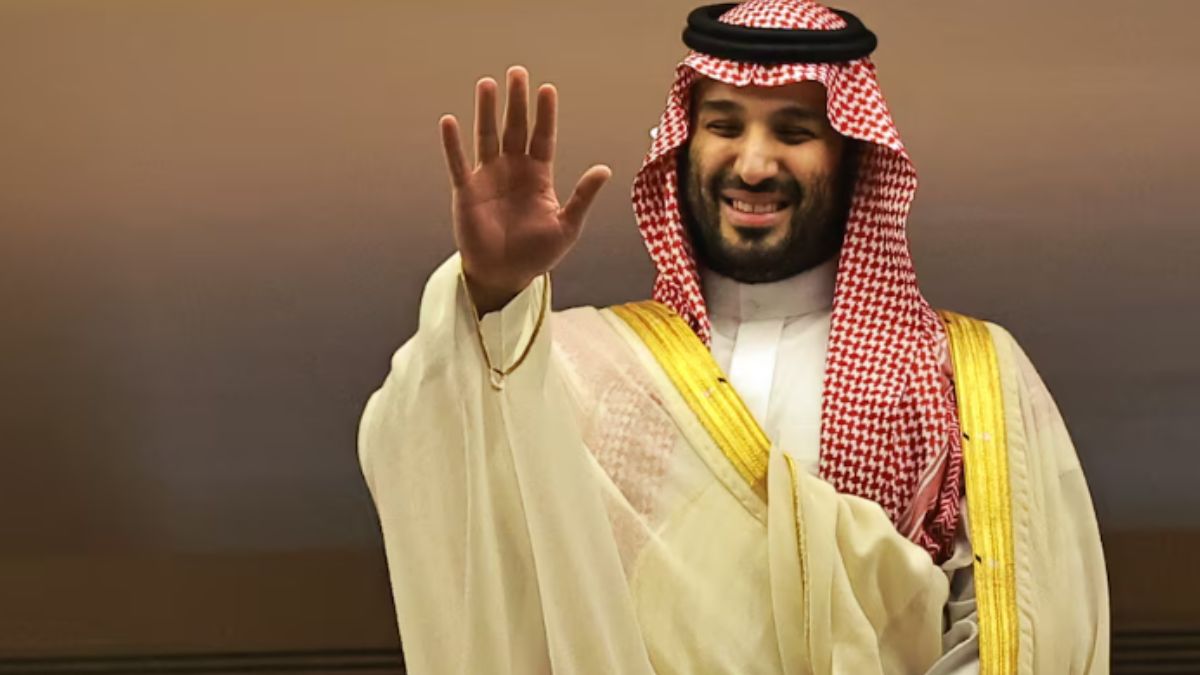US President Donald Trump played a key role in bringing Russia to the negotiating table, but the role of Mohammed bin Salman (MBS), Saudi Arabia’s Crown Prince, has also come to the fore in bringing the two sides to the negotiating table. MBS is a controversial figure, balancing bold reforms with strict control, which has earned him both admiration and criticism.
He presents himself as a reformer, working to transform Saudi Arabia into a global economic power. However, his methods of consolidating power, especially after the killing of journalist Jamal Khashoggi, have led to criticism from human rights groups and governments, including the Biden administration earlier. A question is often asked, particularly by his critics: Is MBS indeed a visionary leader shaping a new future for Saudi Arabia?
A disruptor of tradition
MBS became prominent in 2017 when his father, King Salman, made him Crown Prince, bypassing older royals and breaking Saudi succession traditions. Unlike past rulers who relied on a consensus-based approach, MBS quickly centralised power, sidelining rivals and strengthening his control.
He ended the old system of rule-by-committee, where power was shared among royal family factions, and instead set up a direct, top-down governance style. This marked a major shift from Saudi Arabia’s cautious political culture showing that MBS was ready to challenge traditional systems.
Architect of Vision 2030
One of MBS’s biggest projects is Vision 2030, a plan to reduce Saudi Arabia’s reliance on oil and diversify its economy. He’s focussed on investing in tourism, entertainment and technology aiming to make the kingdom a global business hub.
High-profile projects like the $500 billion NEOM city reflect his goal to transform Saudi Arabia’s economy. His reforms have also brought social changes, such as allowing women to drive, expanding entertainment like cinemas and concerts and easing gender segregation rules.
Impact Shorts
More ShortsWhile praised for modernising the kingdom, critics say Vision 2030 is too ambitious and faces challenges like bureaucratic resistance, financial issues and Saudi Arabia’s heavy reliance on oil. The plan’s success is still uncertain and progress has been slower than expected.
New brand of Saudi diplomacy
MBS has also transformed Saudi Arabia’s foreign policy, adopting a more assertive and often unpredictable approach. He has strengthened ties with China and Russia, signaling a willingness to diversify Saudi Arabia’s strategic alliances beyond the United States.
His decision to engage in rapprochement with Iran through Chinese mediation was a dramatic shift from Saudi Arabia’s historically adversarial stance towards Tehran.
Simultaneously, he has maintained a pragmatic relationship with Israel, despite the absence of formal diplomatic ties, as Saudi Arabia increasingly aligns with Israeli interests in countering Iran’s influence.
As talks between the US and Russia continue on the Ukraine war, MBS has proven to be a key figure whom President Trump trusts to help find a solution to end the conflict, which has already claimed many lives on both sides.
Also Read: Why Trump chose Saudi Arabia as venue for peace talks with Putin
However, MBS’s foreign policy has not been without setbacks. His involvement in the Yemen war, which he started in 2015 as defence minister, was widely criticised for causing a humanitarian crisis.
The Saudi-led coalition’s intervention against Iranian-backed Houthi rebels led to many civilian casualties and a long, unresolved conflict. Also, his 2017 decision to blockade Qatar, accusing it of supporting terrorism, damaged regional relations and failed to reach its goals, as Qatar became more self-reliant and diplomatically stronger.
Shadow of authoritarianism
Despite his reformist image, MBS has used harsh tactics to suppress opposition. His 2017 anti-corruption purge, which saw many princes and businessmen detained at the Ritz-Carlton in Riyadh, was seen as a way to remove rivals while claiming to fight corruption.
The most infamous example of his authoritarianism was the 2018 murder of journalist Jamal Khashoggi. Khashoggi, a critic of the regime, was killed inside the Saudi consulate in Istanbul. While Saudi officials denied MBS’s involvement, US intelligence suggested it came from the top levels of government. The murder harmed Saudi Arabia’s global image and raised concerns about MBS’s willingness to silence critics.
In Saudi Arabia, MBS has targeted activists, including women’s rights campaigners who supported the reforms he later made. Many were jailed, tortured or forced into exile. His use of surveillance tools like Pegasus spyware to track critics shows his reliance on authoritarian methods.
Balancing power and public perception
One of MBS’s biggest challenges is balancing his push for modernisation with the need to maintain support in a conservative society. While younger Saudis, who make up a large part of the population, generally back his reforms, religious conservatives and older elites are more cautious about rapid change.
MBS has worked to gradually ease restrictions while quickly neutralising opposition. How well he manages this balance will decide if he can keep stability while pushing his ambitious agenda.
His relationship with the US has also been complicated earlier. Former president Joe Biden’s administration has been more critical with President Biden initially promising to make Saudi Arabia a “pariah” over the Khashoggi murder. Later, Biden softened his stance, recognising the kingdom’s importance in global energy markets.
Future of MBS’s Saudi Arabia
MBS’s rule marks a turning point for Saudi Arabia, but the long-term effects remain uncertain. If Vision 2030 succeeds, he could be seen as the leader who modernised the kingdom.
His diplomatic efforts, such as playing a mediator role between Russia and Ukraine and improving Riyadh’s relationship with the US, will play a key role in shaping his legacy. Ultimately, his ability to balance domestic reforms and global diplomacy will determine whether he’s remembered as a visionary or a ruthless ruler.
)